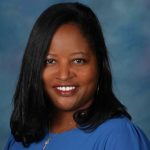Join the Club

Clubs and affinity spaces are designed to appeal to people of common interests and experiences. This shared experience ignites a sense of understanding and support within the group, a familiar camaraderie. The sense of empowerment that exists in affinity spaces is more critical when this group of people is part of a less dominant, disadvantaged, or less experienced group.
I have several friends that are beginning parenthood. I often share with them all the ways in which I messed up, made mistakes, felt inadequate and sometimes even like I was failing as a mother: not only to laugh at myself years later, but also to communicate that they are not alone. I share anecdotes of holding my baby in the backseat of a car without the car seat; eating crackers for dinner; wearing the same pajamas for days; listening to endless crying (not the baby’s—mine); struggling with baby weight (not the baby’s—mine); and yes, leaving my child on a bus. Don’t call Child Services yet; this baby is now 18 and doing amazingly well on his university campus. However, I probably could have used a New Parents Club.
With my colleagues, I share the same kinds of stories of when I was a new teacher. I recall such times as when my 50-minute lesson was over in 10 minutes; I did not show up for class because I did not know my schedule; I taught the right lesson, but to the wrong class; and an angry parent yelled at me. These same students I taught are now productive, successful adults and are thriving in our world. My first years of teaching would have been a great time to be part of a New Teachers Club. Veteran teachers offered wisdom and advice, yet still their teaching seemed flawless in my eyes. I could have used an acknowledgement, “This is hard!”
As an experienced teacher, I can play this role for others as a facilitator in the CATDC Teaching Foundations program. Offered at the end of every summer in Southern California and the Bay Area, this program provides an incredible opportunity for facilitators to think of all the tools we needed when we were at the first stage of our careers, and equip the attendees with those tools. One of the best parts of the program is the time it provides for the attendees to share stories and listen to each other. They understand that others are sharing an aligned experience. It is both an encouraging and supportive space.
I find this same inspiration in other places designed to inspire us in our roles and identities. I am energized when I meet with diversity practitioners. I am refreshed and restored when I share an affinity space with African Americans. I am excited to plan for and be present in CATDC’s Women + Leadership Conference. I feel a sense of belonging and connectedness that not only validates and affirms me in who I am as an educational leader, but inspires me to do more.
Where are these spaces for you? Where are the places that reveal your greatest authenticity and give you permission to be you? When your gas tank nears empty, where can you go to refuel? How can you be purposeful about replacing the energy that our day-to-day work requires? The organizations around you such as NAIS, CAIS, and CATDC all offer this to you.
When we leave these spaces, it is important to stay connected. Hold each other accountable for your goals and overall health. Be intentional about devoting time to the next opportunity to be in the club. Know that you are not alone. And whatever you do, don’t let your club membership expire.
 Trina Moore-Southall has an extensive career of over 20 years in public and private K-12 education. Trina has taught in both the History and English departments at the middle school and high school level. She was recognized in 2009 as Teacher of the Year. With the desire to have a greater voice in school management, she pursued an administrative position. As Dean of Students and Academics at a private, college preparatory school, Trina served as an instructional leader and mentor. Her passion for diversity, equity and inclusion led her to her current senior leadership position of Director of Equity and Inclusion at Brentwood School in Los Angeles. She regularly works to facilitate programs, training, workshops, and seminars to increase awareness and education for people of all walks of life.
Trina Moore-Southall has an extensive career of over 20 years in public and private K-12 education. Trina has taught in both the History and English departments at the middle school and high school level. She was recognized in 2009 as Teacher of the Year. With the desire to have a greater voice in school management, she pursued an administrative position. As Dean of Students and Academics at a private, college preparatory school, Trina served as an instructional leader and mentor. Her passion for diversity, equity and inclusion led her to her current senior leadership position of Director of Equity and Inclusion at Brentwood School in Los Angeles. She regularly works to facilitate programs, training, workshops, and seminars to increase awareness and education for people of all walks of life.
